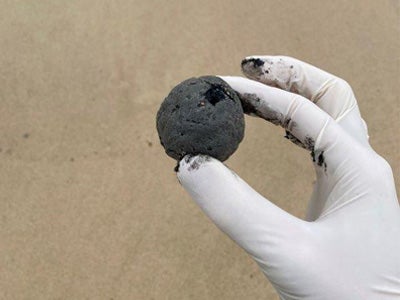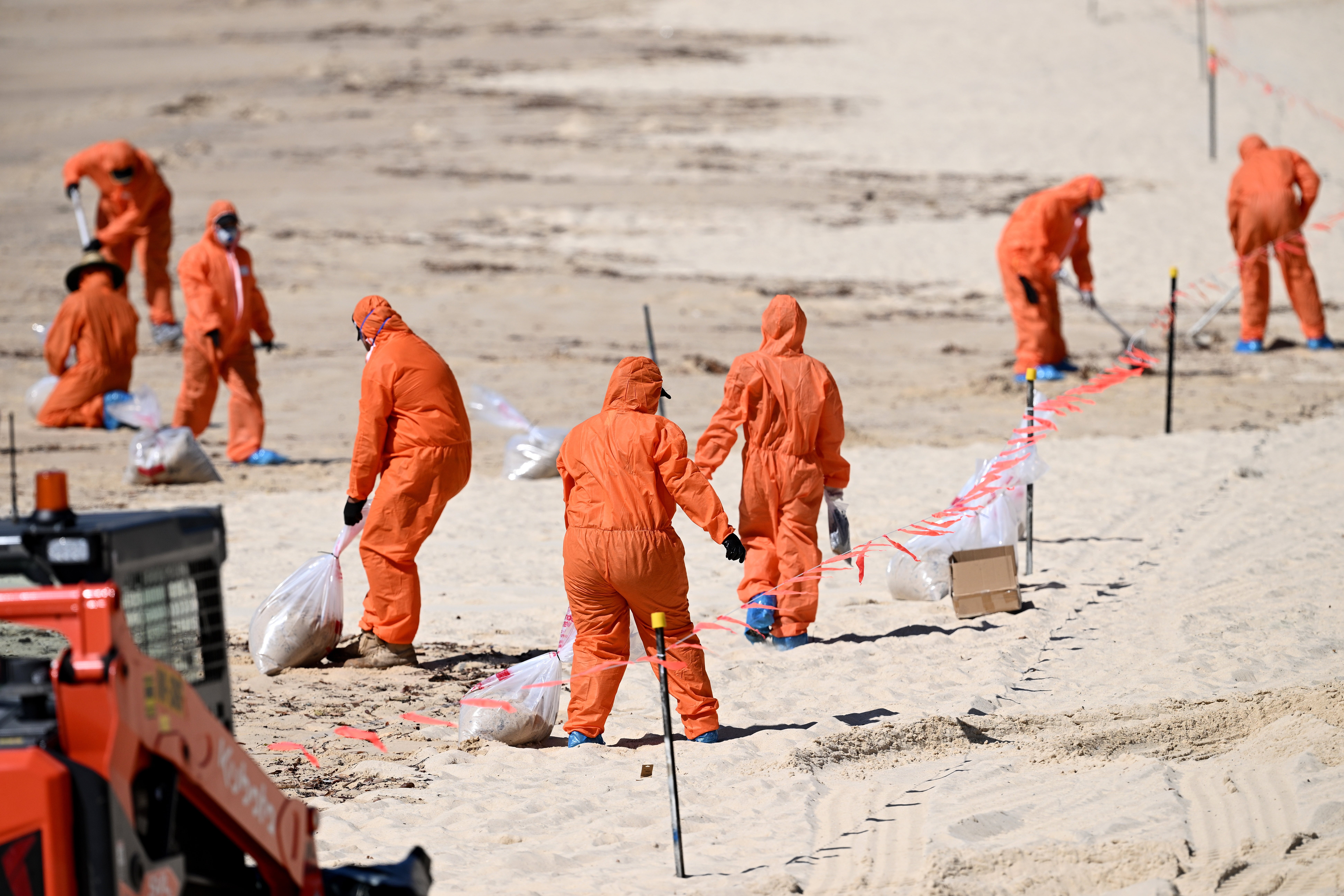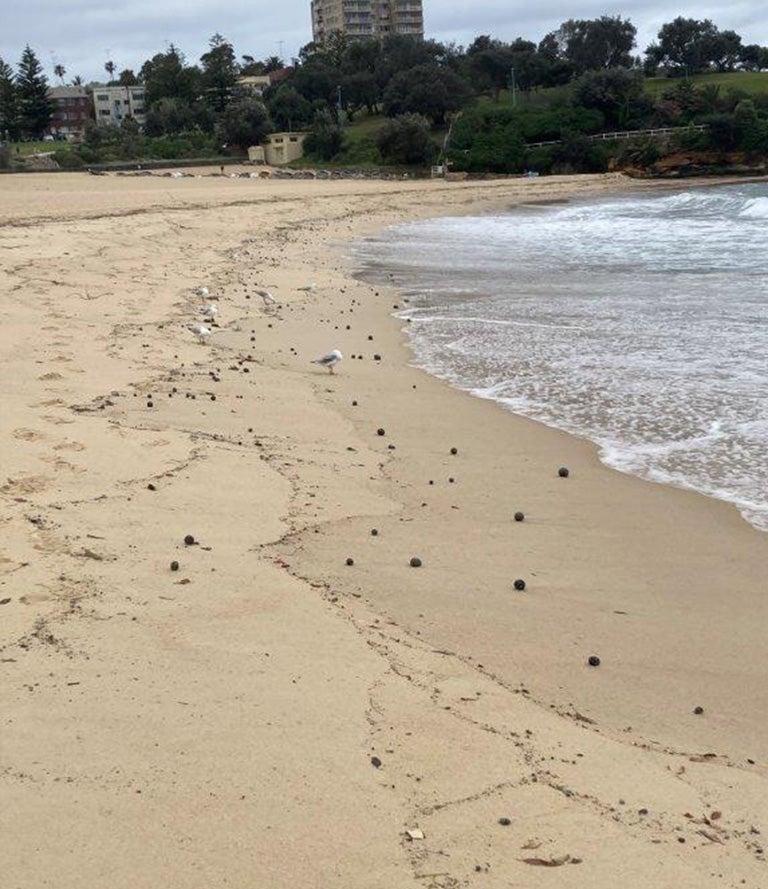Sydney beaches reopen days after hundreds of tar balls wash ashore
The origins of the tar balls is still unclear and under investigation
Beaches in Sydney reopened after being closed earlier this week when hundreds of mysterious golf ball-sized black lumps washed ashore.
These dark spheres, which were first spotted on Coogee Beach on Tuesday, were confirmed to be “tar balls” but it was unclear where they originated.
Penny Sharp, the environment minister of New South Wales, said investigations were continuing to find what was behind the formation of these tar balls.
Waverley Council closed Bondi, Bronte, and Tamarama beaches as a precaution on Thursday evening, while Randwick Council closed four additional beaches, including Clovelly, Maroubra, Gordons Bay, and Coogee.

New South Wales Maritime executive director Mark Hutchings said in a statement the balls were “not extremely toxic” to humans.
“We can now confirm the balls are made up of fatty acids, chemicals consistent with those found in cleaning and cosmetic products, mixed with some fuel oil.
“We’ve found no further evidence of the substance, so this appears to be an isolated incident.
“We’ve had teams on the ground, vessels out on the water, and drones in the sky to clear the majority of the balls from our beaches.”

Around 2,000 balls were picked up since Tuesday, according to The Guardian.
Even though only 150 balls were found on Friday, according to ABC News, beachgoers have still been told to inform lifeguards if they spot any more tar balls and to clean their hands with soap and water or baby oil if they come into contact with them.
On Wednesday evening, Randwick council said preliminary lab test results suggested that the dark spheres were made of tar which could be formed when oil comes into contact with debris and water as a result of oil spills or seepage.
It said the “preliminary test results … show the material is a hydrocarbon-based pollutant which is consistent with the makeup of tar balls”. Hydrocarbons are primarily found in natural sources like petroleum, natural gas, and coal.

The NSW Maritime and the Australian Maritime Safety Authority said earlier this week they were investigating the potential origins of the tar balls.
“[The Australian Maritime Safety Authority] will do reverse modelling and drift modelling, take into account the currents and the wind, for [NSW Maritime] to be able to work out whether it’s come from the south, north or east off the coast of New South Wales,” director Darren Wood told ABC Radio Sydney.
Join our commenting forum
Join thought-provoking conversations, follow other Independent readers and see their replies
Comments
Bookmark popover
Removed from bookmarks